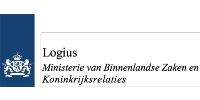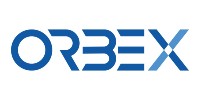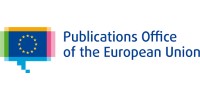UBL: Universal Business Language
Already a member?
Access the UBL community workspace here
Facilitating interoperability in business data exchange by defining a semantic library and syntax bindings of business documents
The OASIS Universal Business Language (UBL) TC solves this problem by defining a syntax neutral semantic library for business documents (the UBL semantic library) that can be restricted or extended to meet the requirements of particular industries, sectors and communities, as well as providing interoperability between systems and vendors when used as a generic interchange document format.
Scope of Work
The specific objectives of the TC are:
– To define, specify and maintain the UBL specification, the UBL semantic library, as well as associated and supporting work products
– To continue promoting UBL’s status as the international standard for electronic business documents
– Fulfill the responsibilities of the designated maintenance authority for ISO/IEC 19845 as well as any other publicly available specification submitted by the TC to an external standards development organization (SDO)
Deliverables
The TC will work on delivering the following work products:
– Publication of the UBL semantic library
– Production of XML and other syntax bindings from the semantic library, as well as technical specifications supporting their use and implementation
– Production of Committee Notes and Specifications to provide guidance for implementing UBL
IPR Mode
The TC will operate under the RF on Limited Terms mode of the OASIS IPR Policy.
UBL is owned by OASIS and is available to all, with no royalty fees.
UBL Technical Subcommittees
UBL Commodities Subcommittee
UBL Organisation Master Data Subcommittee
OASIS UBL Naming and Design Rules Subcommittee
OASIS UBL Payments and Finance Subcommittee
OASIS UBL Post-Award Procurement Subcommittee
OASIS UBL Pre-Award Procurement Subcommittee
OASIS UBL Small Business Subcommittee
OASIS UBL Transportation Subcommittee
Regional Localization Subcommittees
OASIS UBL Latin American Regional Localization Subcommittee
Localization Subcommittees
OASIS UBL Australian Localisation Subcommittee
OASIS UBL Chinese Localization Subcommittee
OASIS UBL Danish Localization Subcommittee
OASIS UBL German Localization Subcommittee
OASIS UBL Italian Localization Subcommittee
OASIS UBL Japanese Localization Subcommittee
OASIS UBL Korean Localization Subcommittee
OASIS UBL Spanish Localization Subcommittee
OASIS UBL Turkish Localization Subcommittee
Managerial Subcommittees
OASIS UBL Adoption Subcommittee

UBL Sponsors






“UBL 2.4 represents a significant advancement, featuring enhanced support for B2C transactions, which will greatly benefit businesses and consumers alike. Additionally, it offers improved alignment with U.S. tax models, ensuring compliance and facilitating smoother transactions. These enhancements reaffirm our commitment to evolving and adapting UBL to meet the ever-changing needs of global commerce.”
Kenneth Bengtsson, UBL TC Chair
Frequently Asked Questions
Originally developed by an OASIS Technical Committee with participation from a variety of industry data standards organizations. UBL is designed to plug directly into existing business, legal, auditing, and records management practices. It is designed to streamline information exchange through standardization, facilitating seamless connections between small, medium-sized, and large organization, thereby eliminating the re-keying of data and providing a comprehensive framework for electronic commerce.
UBL is owned by OASIS and is available to all, with no royalty fees.
The following groups (public and private) should have an interest in the exchange of structured business documents:
– ERP vendors
– Software and service providers
– National, regional and local public authorities
– Procurement and trade communities
– E-invoicing networks
– Supply chain communities
– Logistics and transportation companies
The UBL semantic library is a well-developed information and data model with validators, authoring software, parsers and generators. As of June 2021, the latest approved OASIS Standard is UBL Version 2.3, which includes a total of 91 business document types. All UBL minor versions are fully backwards compatible back to UBL Version 2.0. View all the committee’s work products <here>.
Archives of the mailing list used by OASIS members to conduct Committee work will be viewable following the Call for Participation. TC membership is required to post to this list. TC members are automatically subscribed.

New Members Welcome
Whether you want to actively contribute in decision-making or just observe progress from the inside, you will need to be an OASIS member.
If your employer is already on our current member list, submit this request form to be added to the TC Roster. If not, find out how to join OASIS.
Non-members may monitor the mailing list archives online, view approved documents, and provide feedback to our comments list. Contact Us for more information.


